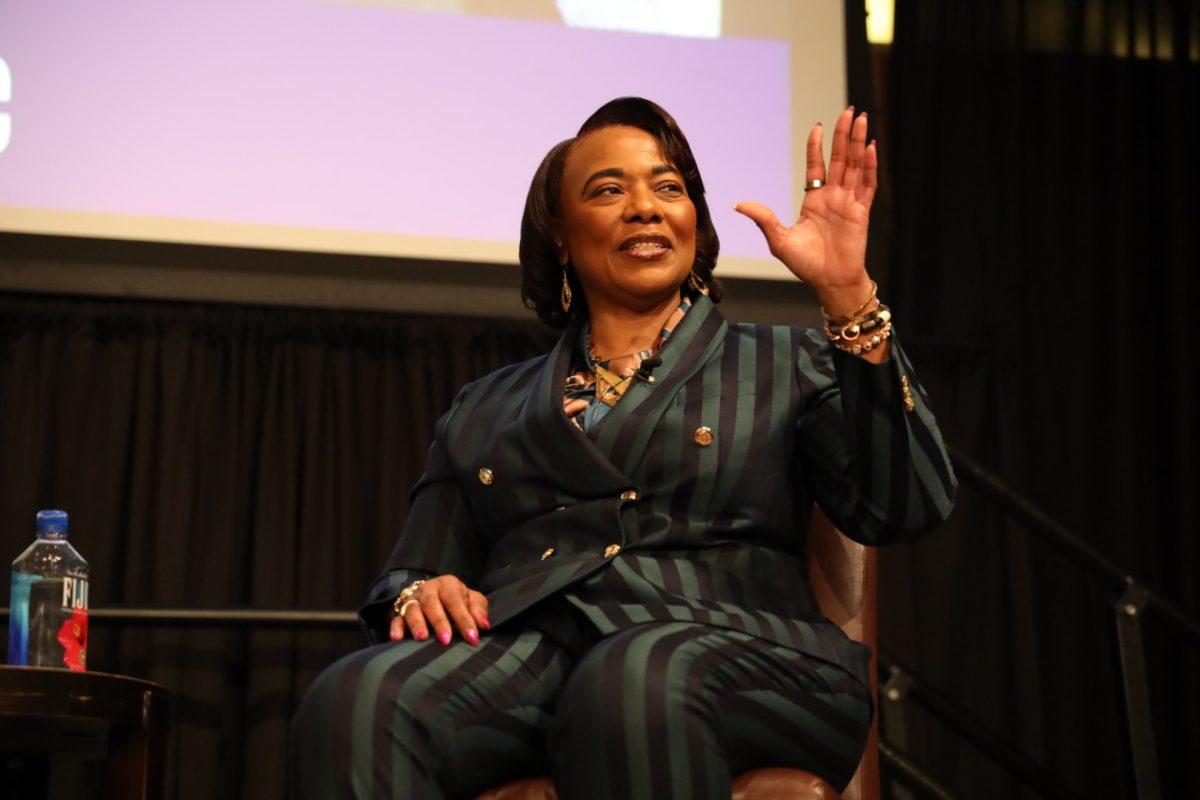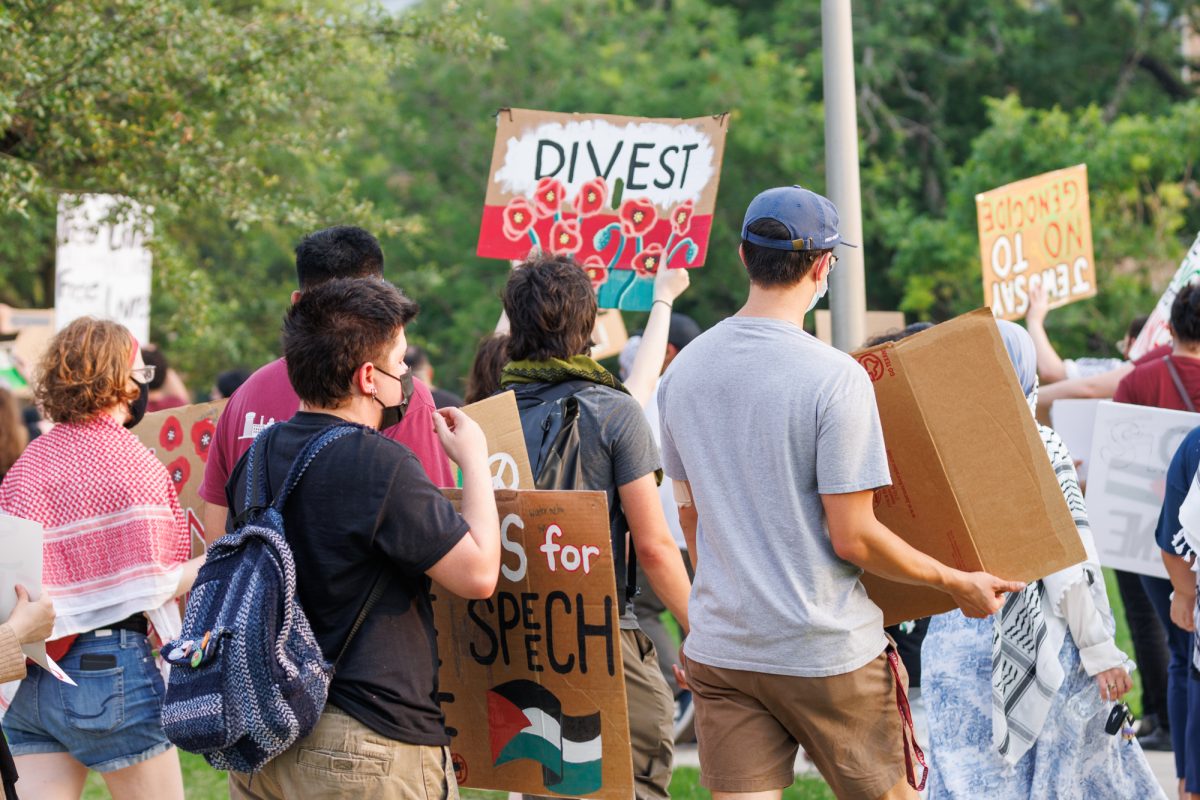On Jan. 26, Texas A&M’s MSC Carter G. Woodson Black Awareness Committee hosted its 16th annual breakfast in honor of Rev. Martin Luther King Jr. This year’s breakfast featured a special guest: his own daughter, Rev. Bernice King.
Bernice joined professor of practice of sociology Troy Harden, Ph.D., the director of the Race and Ethnic Studies Institute, for a keynote discussion in which they discussed the life and work of MLK, as well as his continued significance.
Harden first asked Bernice why celebrating Martin Luther King Jr. Day was still important. Bernice said telling MLK’s story was still necessary because the vision he had for the world had not yet been fulfilled.
“I think it’s important we continue to commemorate his birthday because to me, he provided a vision for our world,” Bernice said. “He gave us a vision to create a world where we can coexist with all of our diversity … I think it will always be needed until we get to a place where the very things that he not only taught us, but he embodied, are embodied in most of us.”
Harden asked Bernice, who was five years old when her father was assassinated, about the personal impact of being the daughter of MLK. Bernice said while growing up, she felt resentment and grief towards her father’s absence and the obligation to tell his story that had been imposed on her.
“I kind of got lost in myself,” Bernice said. “All kinds of emotions developed inside that led to bitterness, moments of rage and I always tell people that, had I been in a household that had guns, I probably would have used one.”
However, Bernice said she was now at peace with the life her father lived and her personal loss was outweighed by the positive impact he made on the world.
“I would have loved to have him as I was growing up, being there for [me],” Bernice said. “I have come to the realization that, although I would want those things … the world is better because of his life, and I wouldn’t want to take that from the world.”
Harden said while MLK is widely celebrated, not as much attention is given to his wife and Bernice’s mother Coretta Scott King, who led the push to create the national holiday in his honor. Bernice King said Coretta was MLK’s strongest supporter and was responsible for the establishment of his legacy.
“When my father was assassinated, he was one of the most hated persons in the United States of America … but now, he’s one of the most beloved persons in the world,” Bernice said. “People say, ‘well that’s because he’s not here and he can’t intimidate us anymore’, but I would argue it’s because of the devotion, the dedication and the work of Coretta Scott King … she was not just the wind beneath the wings, she happened to be the wings.”
Harden asked Bernice to clarify the meaning of her father’s nonviolence principles, which the King Center, where Bernice is the CEO, continues to promote. Bernice said nonviolence did not refer to simply the absence of violence, but it referred to the presence of goodwill towards all.
“Daddy said true peace is not the absence of tension, but the presence of justice,” Bernice said. “So, nonviolence is not the absence of violence, but the presence of something that is positive and powerful … it is grounded in unconditional, agape love.”
At the conclusion of Harden’s questions, questions were opened to the audience. Bernice was asked what message she had for young people across the world. Bernice said she encourages young people to not give up and to keep on struggling for what is right.
“Don’t check out,” Bernice said “My mother always said, ‘freedom is a never ending process’. Freedom is never really won, you earn it and win it in every generation. You cannot check out, because it’s your time to step up and engage these very difficult issues.”
An audience member noted Bernice had been asked extensively about the hardships and tragedies she faced, and asked Bernice what brought her joy. Bernice said young people working to better society makes her proud.
“When I hear different stories, different places and I see young people, like my niece, doing things, and making some headway, I feel joy because I know that what my parents and others who worked with them did laid such a foundation that is almost irresistible and undeniable … They’re riding the wave of those seeds and foundation that was established out of that movement,” Bernice said. “All of these young people who have become more active and engaged and conscious brings me joy … it’s gonna be dark, it’s gonna be difficult, it’s gonna be challenging, but daybreak is coming.”










